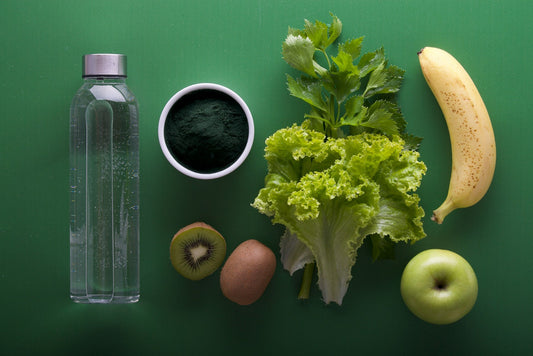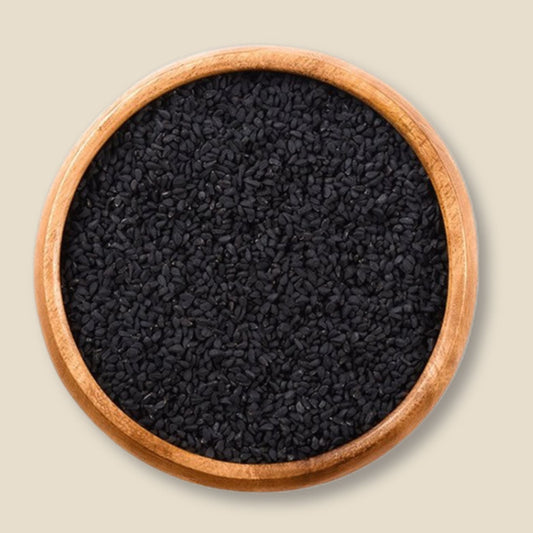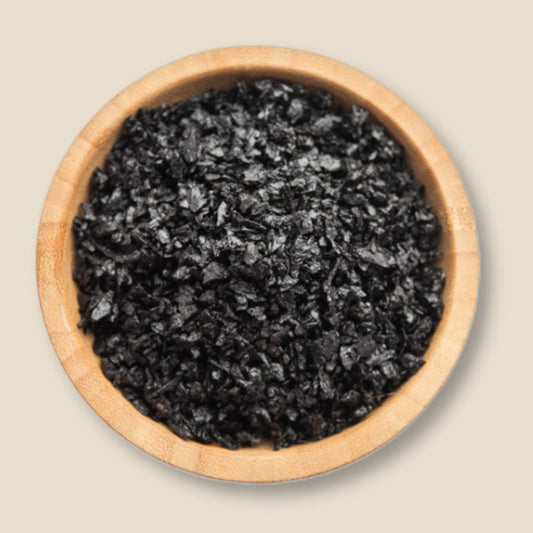
Personalised Nutrition, Why One Diet Doesn’t Fit All
Abdullaah KhanShare
Personalised Nutrition and Bio-Individuality, Why One Size Doesn’t Fit All
Every January, the online wellness world seems to explode with the “perfect” diet: keto, vegan, paleo, intermittent fasting. You name it, someone’s claiming it’s the ultimate solution for everyone.
But here’s the catch, no single diet or eating pattern suits all bodies, lifestyles, or goals. Enter personalised nutrition and bio-individuality, two concepts that focus on tailoring dietary choices to meet your unique needs. Whether you’re training for a half-marathon, looking to balance hormones, or simply want more energy throughout the day, understanding your body’s individual quirks can help you make informed food choices.
Below, we delve into why one size never fits all, how to navigate personalised nutrition, and how certain staples from Sweet Health can complement your journey.
What Is Bio-Individuality?
Bio-individuality is the idea that each person has distinct genetic, metabolic, and lifestyle factors, meaning our bodies process and respond to foods in different ways. Two friends might eat the same salad for lunch every day, one thrives, the other feels lethargic and bloated. This difference could come down to gut microbiome composition, nutrient deficiencies, or hormonal variations.
- Genetics: From lactose intolerance to coeliac disease, some people are predisposed to handle certain nutrients differently.
- Activity Level: A marathon runner likely requires more carbohydrates and overall calories than someone with a sedentary job.
- Life Stage: Nutritional needs shift if you’re pregnant, recovering from illness, or moving into later adulthood.
Remember, your body is the greatest clue to what works best for you.
Moving Beyond Fad Diets
Fad diets often promise quick fixes but are rarely sustainable. Many revolve around restricting entire food groups, counting every calorie, or adhering to overly rigid rules.
Instead of jumping on the latest bandwagon, consider these flexible approaches:
- Mindful Eating: Tune in to hunger and fullness cues. How do you feel after eating certain foods, energetic or sluggish, bloated or satisfied?
- Balanced Meals: Aim for a mix of protein, healthy fats, and complex carbs at each meal. Adjust portions or ingredients based on how your body responds over time.
- Quality Over Quantity: Focus on fresh, nutrient-dense foods rather than obsessing over calories. When possible, choose organic options to reduce exposure to pesticides and additives.
The Role of Gut Health in Personalised Nutrition
Ever wonder why a high-fibre smoothie perks one person up but leaves another feeling gassy? Gut health is a major player in bio-individuality. The trillions of bacteria in your gut, collectively known as the microbiome, help break down food, synthesise certain vitamins, and even influence mood and immunity.
- Fermented Foods: Yoghurt, kefir, sauerkraut, and kimchi can introduce helpful probiotics.
- Prebiotics: Ingredients like oats, bananas, onions, and garlic feed the beneficial bacteria in your gut.
- Black Seed Oil and Honey: If you’re looking to diversify your flavours, a drizzle Black Seed Oil or Raw Yemeni Sidr Honey from Sweet Health can add taste and potential digestive benefits to dishes, depending on your individual tolerance.
Tip, start with small amounts of new gut-friendly foods to gauge your system’s response.
Listening to Your Body’s Signals
One person’s superfood might be another person’s trigger. For instance, kale might energise you, while your partner experiences digestive discomfort. Pay attention to subtle changes, such as bloating, skin flare-ups, or energy crashes, after trying new foods.
Strategies to Help You Tune In:
- Food Journal: Jot down what you eat, how much, and how you feel physically and mentally over the following hours.
- Elimination Diets (With Caution): Temporarily remove potential irritants, like dairy or gluten, and reintroduce them slowly to see if symptoms reappear. Seek medical guidance for best results.
- Professional Support: A registered dietitian or nutritionist can run tests, interpret symptoms, and offer targeted advice based on your health history.
Personalised Supplements and Testing
In the era of at-home genetic and microbiome testing, it’s tempting to jump right into self-prescribed supplement regimes. While these tests can offer fascinating insights, professional interpretation is crucial. An isolated result, such as being low in vitamin D, might not tell the whole story about your overall health or daily routine.
- Quality Control: If you do opt for supplements, look for reputable brands that have been third-party tested.
- Real Food First: While vitamins can fill gaps, remember that nutrients in whole foods often come with synergistic compounds, such as fibre and antioxidants, that work together to support health.
- Gentle Introductions: Try one supplement or functional food at a time so you can observe its impact on your body without confusion.
Practical Tips for Personalised Nutrition
- Experiment with Meal Frequency: Some people thrive on three larger meals, while others prefer smaller, more frequent mini-meals.
- Rotate Your Ingredients: Instead of having the same breakfast every day, switch it up. One morning might be porridge with Organic Raw Black Seeds, another could be eggs and spinach.
- Plan for Life’s Demands: If you’re an endurance athlete, up your carb intake with quinoa or sweet potatoes. If you’re sitting at a desk all day, opt for lighter meals that won’t lead to a slump.
- Variety Is Key: Nutritional variety ensures a broad spectrum of vitamins and minerals, and keeps your taste buds excited.
- Respect Cultural and Ethical Preferences: Vegan, vegetarian, or halal diets can all work beautifully when carefully planned. Factor in your ethics and cultural heritage to create a sustainable way of eating.
Integrating Natural Health Foods in your Day
Because Sweet Health focuses on high-quality, organic foods, you can easily fit them into a personalised approach:
- Organic Virgin Cold Pressed Egyptian Black Seed Oil: Use in dressings or marinades if you tolerate slightly peppery flavours.
- Raw Royal Yemeni Sidr Honey: Ideal for those wanting a natural sweetener (in moderation) without resorting to refined sugar.
- Himalayan Pink Salt: If you’re monitoring sodium, a fine-grade pink salt could be a flavourful alternative (used sparingly).
- Organic Black Seeds (Nigella sativa): Sprinkle on salads, soups, or roasted vegetables for an earthy crunch and potential anti-inflammatory effects.
These products can be easily adjusted to fit your unique dietary requirements, whether you need more healthy fats, fewer carbs, or extra antioxidants, without feeling overly restrictive.
Embracing Flexibility and Adaptation
What works for you now might shift in six months or a year. Our nutritional needs evolve due to factors like age, hormonal changes, or a new fitness routine. Regularly reassess your diet to ensure it still feels energising, enjoyable, and aligned with your goals.
Remember, personalised nutrition isn’t about perfection, it’s a journey of curiosity and fine-tuning.
Final Thoughts
Bio-individuality reminds us that health is not a cookie-cutter process. Taking the time to understand your own body’s signals, whether through mindful eating, professional advice, or gentle experimentation, can lead to a more sustainable and satisfying relationship with food.
By carefully choosing and varying the foods you eat, from wholegrains and lean proteins to select superfoods and organic staples, you can tailor your meals to truly nourish both body and mind.
At the end of the day, the real secret to personalised nutrition lies in celebrating your uniqueness, while staying open to continual learning and adaptation. With Sweet Health products in your kitchen, you have an array of quality ingredients ready to fit neatly into the personalised approach that works best for you.
References
- NHS. (2023). What is a balanced diet?
- Academy of Nutrition and Dietetics. (2021). Personalizing your plate.
- Public Health England. (2020). Eatwell Guide
- Harvard T.H. Chan School of Public Health. (2021). The Gut Microbiome in Health and Disease.
(Disclaimer: This article provides general information and does not replace professional medical advice. Always consult a qualified healthcare professional for personalised guidance.)







